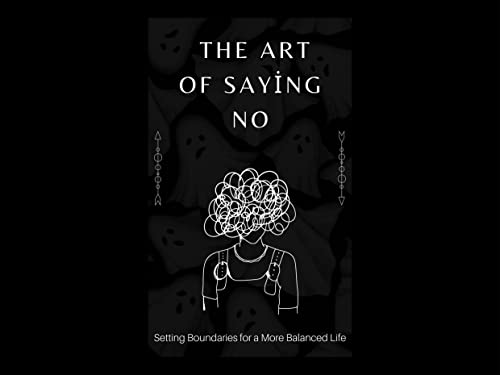In today’s fast-paced world, it seems like there are never enough hours in the day to accomplish everything on our to-do lists. We find ourselves constantly juggling multiple responsibilities and commitments, always striving to meet the expectations of those around us. But what if I told you there is a way to reclaim your time and restore balance to your life? The answer lies in the art of saying “no.”
For many of us, saying “no” can be a challenge. We fear disappointing others or being seen as selfish or unhelpful. We often feel compelled to say “yes” to every request that comes our way, whether it’s from our boss, friends, family, or even strangers. However, by constantly saying “yes” to others, we unintentionally say “no” to ourselves and our own well-being.
Learning to say “no” is not about being rude or indifferent. It is about setting healthy boundaries and prioritizing our own needs. Saying “no” means respecting our time, energy, and mental health. It means recognizing that our well-being is just as important as anyone else’s.
The first step to mastering the art of saying “no” is self-awareness. Take a moment to reflect on your current commitments and obligations. Are they aligned with your values and goals? Do they bring you joy and fulfillment? If the answer is no, it’s time to reassess your priorities.
Once you have a clear understanding of what truly matters to you, it becomes easier to make conscious choices about where you invest your time and energy. When faced with a new request, ask yourself if it aligns with your values and if it supports your goals. If not, it’s perfectly acceptable to politely decline.
It’s important to remember that saying “no” doesn’t mean you don’t care or aren’t willing to help. It simply means that you’re choosing to focus on what truly matters to you. By saying “no” to things that don’t align with your values or goals, you create space in your life for what truly brings you joy and fulfillment.
Of course, saying “no” can still be difficult, especially when the request comes from someone close to us. In these situations, it’s crucial to communicate your decision in a compassionate and understanding manner. Express your gratitude for being considered and explain your reasons for declining the request. Be honest and transparent about your current commitments and boundaries.
It’s important to note that saying “no” may initially be met with resistance or disappointment. Some people may struggle to accept your decision, especially if they are used to you always saying “yes.” However, standing firm in your decision is essential for your own well-being. Remember, it’s not your responsibility to constantly please others at the expense of your own happiness.
In addition to setting boundaries and prioritizing your own needs, saying “no” also allows you to be more present in the activities and relationships that truly matter to you. By eliminating unnecessary obligations, you create space for quality experiences and meaningful connections.
Saying “no” can feel empowering and liberating. It allows you to regain control of your time and energy, helping you avoid burnout and overwhelm. It also helps build self-confidence and assertiveness, as you assert your needs and boundaries.
Ultimately, the art of saying “no” is about finding a balance between giving and receiving. It’s about recognizing that your own well-being is just as important as that of others. By learning to say “no” when necessary, you reclaim your time, energy, and life, allowing you to live a more fulfilled and balanced existence. So, the next time you feel overwhelmed or stretched thin, give yourself permission to say “no.” You’ll be amazed at the positive impact it has on your overall well-being and happiness.
